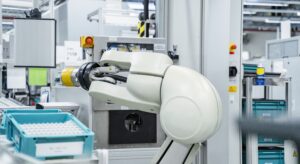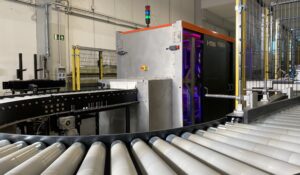The automation of industrial machines has transformed the way factories and production plants operate around the world. Thanks to the integration of advanced control and monitoring systems, industries have been able to improve efficiency and reduce operating costs.
However, this digitization process has also significantly increased cybersecurity risks, making critical infrastructure protection a priority. As industrial environments become increasingly connected to enterprise networks and the Internet, cyber threats can compromise operational continuity, generate economic losses and, in some cases, put public safety at risk.
Common threats in industrial automation
Industrial environments use systems such as SCADA (Supervisory Control and Data Acquisition) and PLC (Programmable Logic Controllers) to monitor and control key processes. However, their connectivity to enterprise networks and even the Internet makes them vulnerable to multiple threats, including:
- Malware and ransomware: Malware attacks can affect the operation of industrial devices, while ransomware attacks can hijack critical systems, demanding payments for their release.
- Denial of Service Attacks (DDoS): These attacks overload industrial networks, affecting the availability of control systems.
- Data manipulation and sabotage: Attackers can modify critical parameters in production systems, generating manufacturing errors or causing security breaches.
- Exploitation of vulnerabilities: Many industrial infrastructures rely on old software and hardware that has not been updated or patched, exposing them to attacks.
Impact of attacks on industrial automation
Cyber-attacks in industrial environments can generate a number of detrimental consequences at both operational and financial levels. Production disruption is one of the most obvious effects, as a cyberattack can bring manufacturing lines to a complete halt, causing delays in product delivery and significant financial losses. In addition, the integrity of the physical infrastructure is also at risk, as tampering with industrial control systems can lead to dangerous mechanical failures that compromise the safety of facilities and personnel.
Another critical aspect is the leakage of confidential information. Exposure of sensitive data can affect a company’s competitive advantage and weaken its market position.
In sectors where automation plays an essential role, such as the energy industry or transportation, attacks can escalate to become threats to public safety, affecting essential services and endangering the lives of many people. These risks highlight the urgency of adopting effective cybersecurity measures to prevent and mitigate potential attacks in the industrial environment.
Strategies to improve cybersecurity in industrial systems.
To protect critical infrastructures, it is essential to implement security strategies tailored to industrial environments. Some of the best practices include:
- Network segmentation: Separating industrial networks from corporate networks and Internet access can minimize the risks of attack propagation.
- Access control: Implement multi-factor authentication (MFA) and “least privilege” principles to limit access to sensitive systems.
- Updating and patching systems: Keeping SCADA and PLC systems up to date reduces exposure to known vulnerabilities.
- Threat monitoring and detection: Use intrusion detection and behavioral analysis tools to identify attacks in real time.
- Staff training: Cybersecurity awareness is key to avoid human errors that can compromise the security of systems.
The future of cybersecurity in industrial automation
As industry adopts technologies such as the Industrial Internet of Things (IIoT) and Artificial Intelligence, cybersecurity becomes more complex. Organizations must focus on implementing Zero Trust models, where every access to the network must be rigorously verified.
In short, we can say that cybersecurity in industrial automation is a constantly evolving challenge, but with the implementation of good practices and the commitment of organizations, it is possible to mitigate risks and ensure the safe operation of critical systems.
In the engineering department of i-mas we are specialized in the combination of artificial vision technologies, deep learning and industrial automation in production processes, which allows us to offer integral solutions adapted to the specific needs of each client.
Want to learn more about our services? Contact us or visit our projects section!



